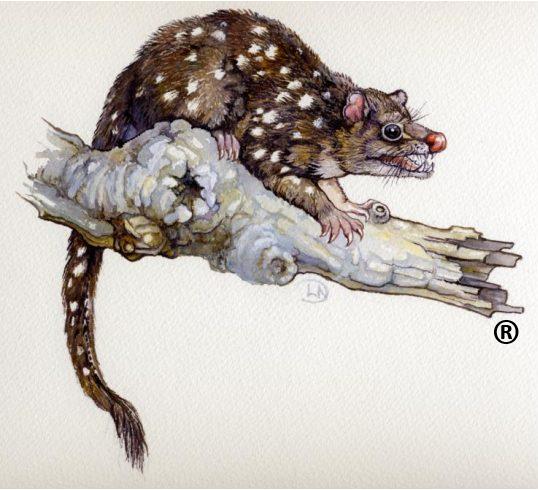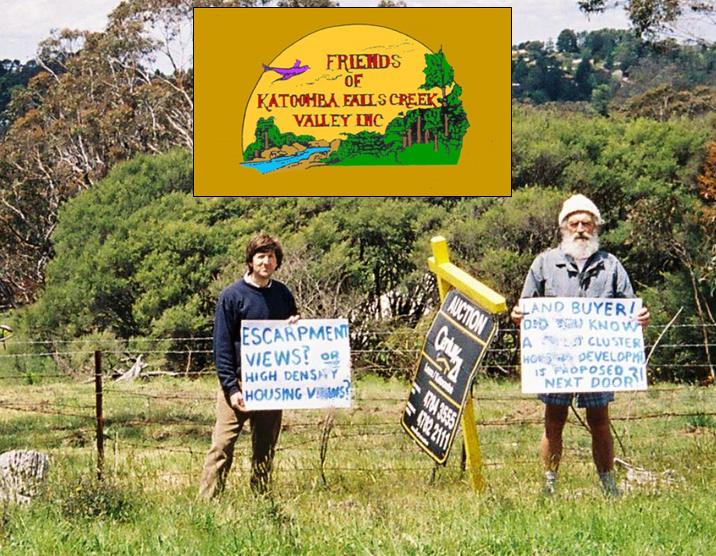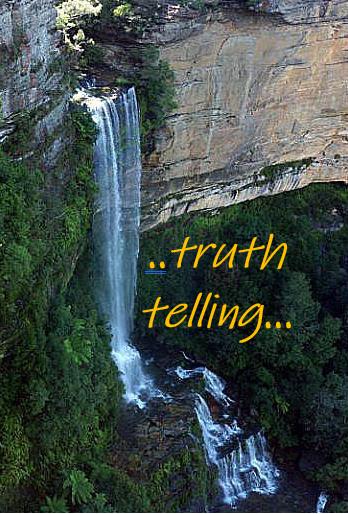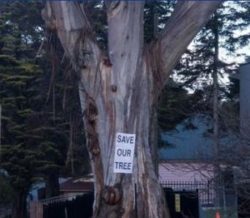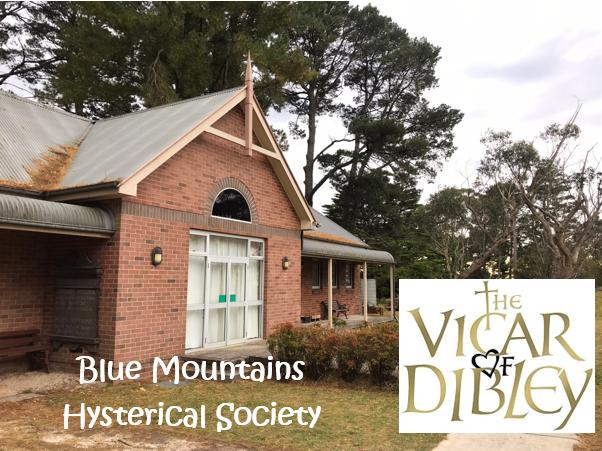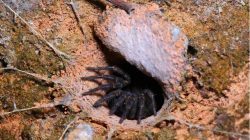Habitat Web Books
Publications by The Habitat Advocate are to be made available on this website free of charge, that is they can be freely read and indeed some embedded documents downloaded and printed.
We call them Habitat Web Books© since 2001.
To ensure copyright respect and protection of both our content and that of others which we often include and duly reference, we protect the content of this website including our Habitat Web Books so that, like printed books and eBooks, the content cannot be copied and otherwise used nor manipulated. We note that Amazon sells eBook Kindles with such protections, and The Habitat Advocate does not sell its content, yet offers the equivalent copyright protections.
Habitat Web Books are all on this website, and these are early days. Our aim is to comprise literary works about native habitat which we have authored here on The Habitat Advocate website as either books or poetry. We do not offer any of our publications in print form, because we value trees. We do not offer any of our publications for download, because we value copyright.
Currently these works remain works-in-progress and are not yet published/available to the public. We are in consultation with our colleagues who have been granted password access to the draft versions as we invite their informed and valued feedback on the content thus far. Once each Habitat Web Book is complete, we shall make it public available for reading and notify this public access on the front home page of this website.
This is a new venture for us.
Our Habitat Web Books:
1. > The Pulpit Post Newsletters
2. > The Friends Archive: War and Peace with the Blue Mountains hysterical Society
- [Editor’s Note: This Habitat web book is currently being drafted. Our anticipated publication date on this website is late winter 2023]
3. > The Neil Lewis Stuart Archive
- [Editor’s Note: This Habitat web book is currently being drafted. Our anticipated publication date on this website is spring 2023]
4. > On The Receiving End
- [Editor’s Note: This Habitat web book is currently being drafted. Our anticipated publication date on this website is summer 2023]
5. > Katoomba Gully – A Microcosm of Australian Government Eco-neglect, Greenwashing, and Paternalistic Elitism
- [Editor’s Note: This Habitat web book is under draft; the anticipated publish date on this website is autumn 2024]
About:
At The Habitat Advocate, our authored books adopt a special approach to publishing. We write online on this website as a ‘web book‘ in order to provide readers with the following benefits:
- We avoid using the traditional printed paper medium, thus avoiding the need to kill more trees, which would have been typically planted where original native forest habitats and their wildlife happily pre-existed before the axe and chainsaw.
- We save money by not engaging a commercial publisher, printer or distributors
- We avoid paying for proprietary eBook software, since this website platform utilised community-based free open-source WordPress website software
- We are independent of any influence and free to write and edit content dynamically any time we choose. This is especially handy since usually the ongoing news about a subject place and its stories continue to evolve over time, so we update coneent by adding new chapters from time to time accordingly. Thus, no book authored by The Habitat Advocate gets locked in time nor requires separate follow-up editions. Each book is dynamic, whilst retaining the originality of published chapters without future edit, we are free to then insert additional chapters as subsequent issues arise. This can be at the end or in between original chapters, and we highlight such additional chapter additions in the Contents Edition page of each of our books.
- Instead of consecutively numbering our chapters in our books, we date stamp each chapter according to the initiation date of the particular story. We use the international date format YYYYMMDD, such as 20220630 represents the date 30th June 2022. This naming structure allows the book to be dynamic indefinitely, subject to the internal protocols of The Habitat Advocate, and even after this author is long gone.
- Our books are free to anyone on this planet to read
- Our books are conveniently available on the Internet on this website, only
- Readers of our books can read our books anytime that suits them.
Habitat Poetry
(content pending)
.
No time to read books or poetry?
. Many claim these days that they don’t have spare time to read books or poetry. Yet spare time is really there, but it comes down to disciplined time management and people skills of polite delegation, to reveal the gem of spare time. Spare time can be used capriciously, but since it is valuable, prioritising best uses for maximum benefit should reward most. .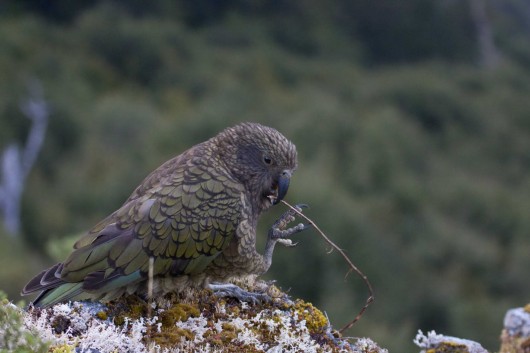
Kea (Nestor notabilis)
Parrot native to New Zealand, once slaughtered by colonists in the tens of thousands for its beak.
Read More: ^http://www.parrotsociety.org.au/articles/art_044.htm
.(click photo to enlarge, then click again to enlarge again)
Why read to learn?
. People who chose to read books to acquire knowledge (non-fiction and embedded in fiction) stand to gain from the wisdom of the experiences and learning of others who have succinctly consolidated their experience, memories and research into text, photography, audio, video, and art. Reading books of concise useful knowledge saves time. Otherwise one’s learning requires decades of life experiences. Since mature adult life is short – say 40 years if health permits, books that capture experience save years on a plate. But wisdom then is about applying that knowledge – but to do so requires a mature and humble receptiveness. So choose books of greatest personal value first, because one is never really sure that spare time can always be there. The benefits of wisdom are far more than avoiding mistakes, costs and setbacks. They are knowng what works and what is right and how to defend one’s judgment. There are many witty quotes about wisdom, but this one I found most positive and humbly encourages further learning:‘Wisdom is knowing what to do next; Skill is knowing how to do it, and Virtue is doing it‘. [ David Starr Jordan]
Who was David Starr Jordan? David Starr Jordan, Ph.D., LL.D. [1851 – 1931] ‘was a leading ichthyologist (fish zoologist) , educator and peace activist. He was president of Indiana University and Stanford University. Jordan was born in Gainesville, New York, and studied at Cornell University, Butler University, and the Indiana University School of Medicine. He served as President of Stanford University from 1891 to 1913 and during that time also served as a Director of the Sierra Club from 1892 to 1903’ – perhaps one reason for selecting his quote. [Source: ^http://en.wikipedia.org/wiki/David_Starr_Jordan]
The following books are a good start for learning about conservation and more. They are not exhaustive and relevant valuable additions to the list are welcome. Titles starting with the word ‘The’ are listed under the second word of the title.‘So much insightful knowledge is generated by wise people but lost before those who have it, pass on and before those who yearn it, arrive.
Humanity’s greatest missed opportunity is the chasm between the wise and the willing‘.
[Editor 20100905].
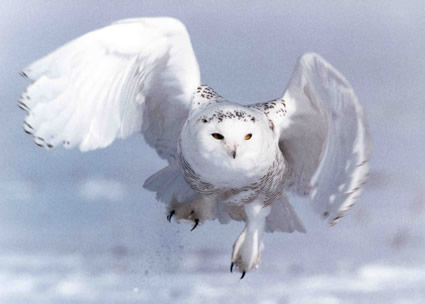 [Snowy Owl, Bubo scandiacus, ©whitewolfjourneys.com ]
This photo spot is a celebration the editor’s mother’s reverence for owls and her concern for their plight – a view unconditionally shared by the editor.
[Snowy Owl, Bubo scandiacus, ©whitewolfjourneys.com ]
This photo spot is a celebration the editor’s mother’s reverence for owls and her concern for their plight – a view unconditionally shared by the editor.
..
‘A wise old owl lived in an oak
The more he saw the less he spoke
The less he spoke the more he heard.
Why can’t we all be like that wise old bird?’
.
…when the owls are gone, how will people read this poem?
.


